MEASURES AGAINST JAPANESE FOOD
입력 2019.08.22 (14:58)
수정 2019.08.22 (16:46)
읽어주기 기능은 크롬기반의
브라우저에서만 사용하실 수 있습니다.
[Anchor Lead]
As Koreans grew increasingly concerned about the radioactive materials detected in Japanese food imports, the Korean government has decided to toughen safety tests on imported food. Imported food items that had been detected with even minuscule amounts of radioactive materials will be subjected to twice as many tests.
[Pkg]
Here in the nation, there's growing concern over radioactive contamination of food imports from Japan.
[Soundbite] LEE GEON-WUK(GYEONGGI-DO RESIDENT) : "I only buy domestic products because of the radioactivity. We should avoid Japanese food imports."
This is why the Korean government has come up with countermeasures. Tougher tests will be conducted on imported food items with records of having been returned to the country of origin in the past five years due to presence of radioactive materials. The food items facing tougher inspections are all from Japan. Tests will be carried out on 17 products, including 10 processed foods, such as instant coffee and tea, three agricultural products like blueberries, as well as food additives and health supplements.
[Soundbite] LEE SEUNG-YONG(MINISTRY OF FOOD AND DRUG SAFETY) : "We plan to conduct more thorough tests on imported foods by collecting twice as much samples from the food items that were sent back in the past five years because of radioactive materials."
In the past, radioactive level test was done on a one-kilogram sample taken for each manufactured date. But from now on, one-kilo samples will be taken twice to undergo two rounds of testing. The aim is to heighten accuracy by increasing test samples. Since the 2011 Fukushima nuclear reactor disaster, the Korean government has been banning imports of seafood from 8 Japanese prefectures and 27 agricultural products from 14 prefectures. For other food imports even a very low level of radioactivity detected means they have to be sent back. The Ministry of Food and Drug Safety assured that imported foods that have been detected with radioactive substances have never been sold in local markets.
As Koreans grew increasingly concerned about the radioactive materials detected in Japanese food imports, the Korean government has decided to toughen safety tests on imported food. Imported food items that had been detected with even minuscule amounts of radioactive materials will be subjected to twice as many tests.
[Pkg]
Here in the nation, there's growing concern over radioactive contamination of food imports from Japan.
[Soundbite] LEE GEON-WUK(GYEONGGI-DO RESIDENT) : "I only buy domestic products because of the radioactivity. We should avoid Japanese food imports."
This is why the Korean government has come up with countermeasures. Tougher tests will be conducted on imported food items with records of having been returned to the country of origin in the past five years due to presence of radioactive materials. The food items facing tougher inspections are all from Japan. Tests will be carried out on 17 products, including 10 processed foods, such as instant coffee and tea, three agricultural products like blueberries, as well as food additives and health supplements.
[Soundbite] LEE SEUNG-YONG(MINISTRY OF FOOD AND DRUG SAFETY) : "We plan to conduct more thorough tests on imported foods by collecting twice as much samples from the food items that were sent back in the past five years because of radioactive materials."
In the past, radioactive level test was done on a one-kilogram sample taken for each manufactured date. But from now on, one-kilo samples will be taken twice to undergo two rounds of testing. The aim is to heighten accuracy by increasing test samples. Since the 2011 Fukushima nuclear reactor disaster, the Korean government has been banning imports of seafood from 8 Japanese prefectures and 27 agricultural products from 14 prefectures. For other food imports even a very low level of radioactivity detected means they have to be sent back. The Ministry of Food and Drug Safety assured that imported foods that have been detected with radioactive substances have never been sold in local markets.
■ 제보하기
▷ 카카오톡 : 'KBS제보' 검색, 채널 추가
▷ 전화 : 02-781-1234, 4444
▷ 이메일 : kbs1234@kbs.co.kr
▷ 유튜브, 네이버, 카카오에서도 KBS뉴스를 구독해주세요!
- MEASURES AGAINST JAPANESE FOOD
-
- 입력 2019-08-22 15:01:12
- 수정2019-08-22 16:46:24
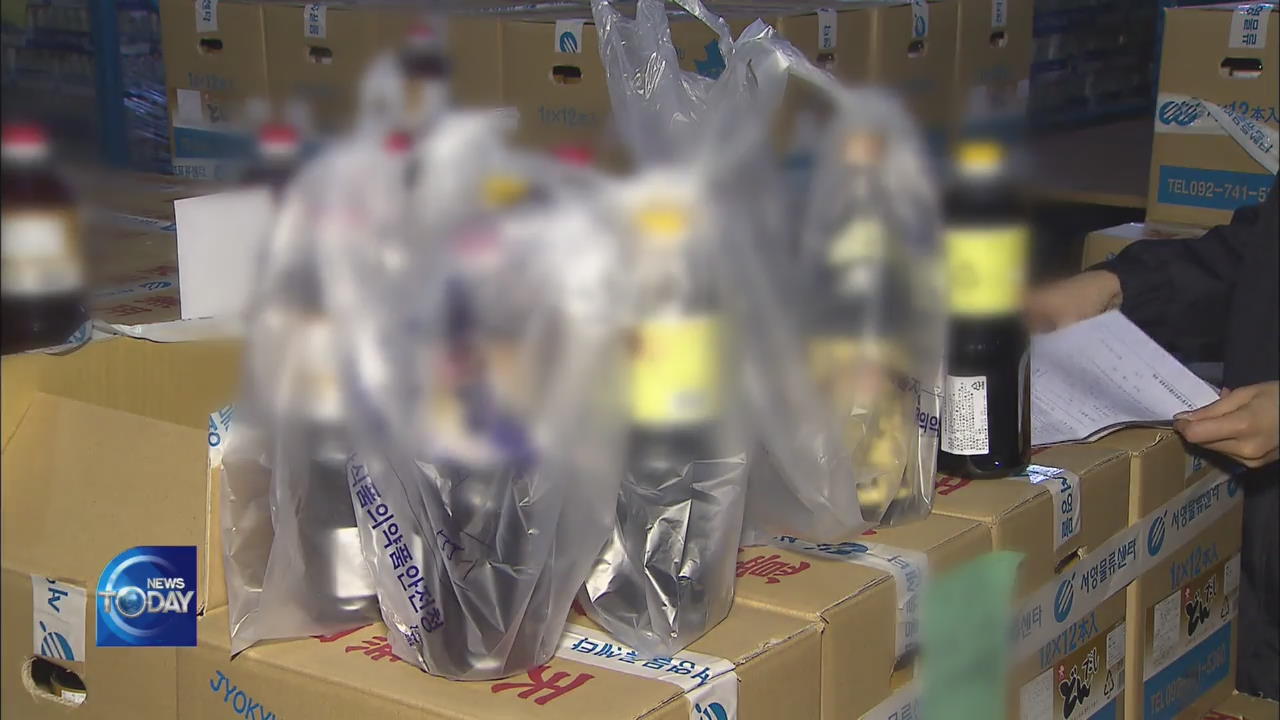
[Anchor Lead]
As Koreans grew increasingly concerned about the radioactive materials detected in Japanese food imports, the Korean government has decided to toughen safety tests on imported food. Imported food items that had been detected with even minuscule amounts of radioactive materials will be subjected to twice as many tests.
[Pkg]
Here in the nation, there's growing concern over radioactive contamination of food imports from Japan.
[Soundbite] LEE GEON-WUK(GYEONGGI-DO RESIDENT) : "I only buy domestic products because of the radioactivity. We should avoid Japanese food imports."
This is why the Korean government has come up with countermeasures. Tougher tests will be conducted on imported food items with records of having been returned to the country of origin in the past five years due to presence of radioactive materials. The food items facing tougher inspections are all from Japan. Tests will be carried out on 17 products, including 10 processed foods, such as instant coffee and tea, three agricultural products like blueberries, as well as food additives and health supplements.
[Soundbite] LEE SEUNG-YONG(MINISTRY OF FOOD AND DRUG SAFETY) : "We plan to conduct more thorough tests on imported foods by collecting twice as much samples from the food items that were sent back in the past five years because of radioactive materials."
In the past, radioactive level test was done on a one-kilogram sample taken for each manufactured date. But from now on, one-kilo samples will be taken twice to undergo two rounds of testing. The aim is to heighten accuracy by increasing test samples. Since the 2011 Fukushima nuclear reactor disaster, the Korean government has been banning imports of seafood from 8 Japanese prefectures and 27 agricultural products from 14 prefectures. For other food imports even a very low level of radioactivity detected means they have to be sent back. The Ministry of Food and Drug Safety assured that imported foods that have been detected with radioactive substances have never been sold in local markets.
As Koreans grew increasingly concerned about the radioactive materials detected in Japanese food imports, the Korean government has decided to toughen safety tests on imported food. Imported food items that had been detected with even minuscule amounts of radioactive materials will be subjected to twice as many tests.
[Pkg]
Here in the nation, there's growing concern over radioactive contamination of food imports from Japan.
[Soundbite] LEE GEON-WUK(GYEONGGI-DO RESIDENT) : "I only buy domestic products because of the radioactivity. We should avoid Japanese food imports."
This is why the Korean government has come up with countermeasures. Tougher tests will be conducted on imported food items with records of having been returned to the country of origin in the past five years due to presence of radioactive materials. The food items facing tougher inspections are all from Japan. Tests will be carried out on 17 products, including 10 processed foods, such as instant coffee and tea, three agricultural products like blueberries, as well as food additives and health supplements.
[Soundbite] LEE SEUNG-YONG(MINISTRY OF FOOD AND DRUG SAFETY) : "We plan to conduct more thorough tests on imported foods by collecting twice as much samples from the food items that were sent back in the past five years because of radioactive materials."
In the past, radioactive level test was done on a one-kilogram sample taken for each manufactured date. But from now on, one-kilo samples will be taken twice to undergo two rounds of testing. The aim is to heighten accuracy by increasing test samples. Since the 2011 Fukushima nuclear reactor disaster, the Korean government has been banning imports of seafood from 8 Japanese prefectures and 27 agricultural products from 14 prefectures. For other food imports even a very low level of radioactivity detected means they have to be sent back. The Ministry of Food and Drug Safety assured that imported foods that have been detected with radioactive substances have never been sold in local markets.
이 기사가 좋으셨다면
-
좋아요
0
-
응원해요
0
-
후속 원해요
0










![[HEADLINE]](https://news.kbs.co.kr/data/news/2019/08/22/4267748_10.jpg)
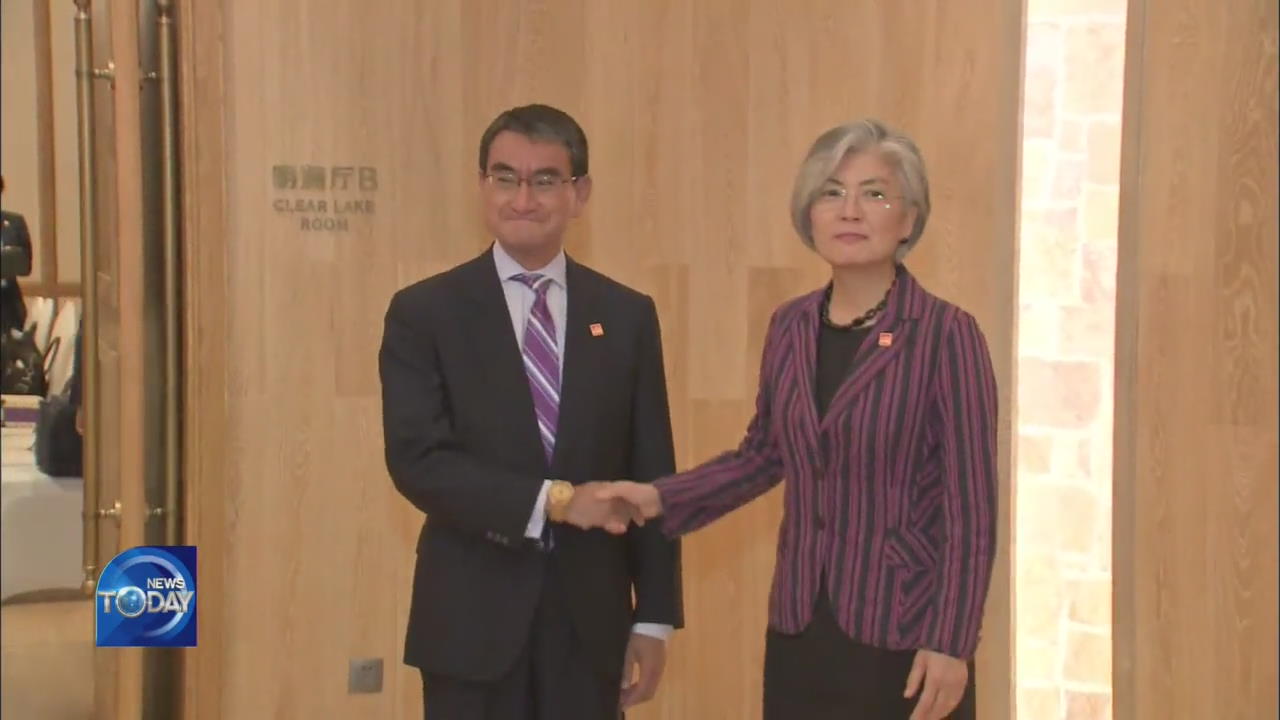
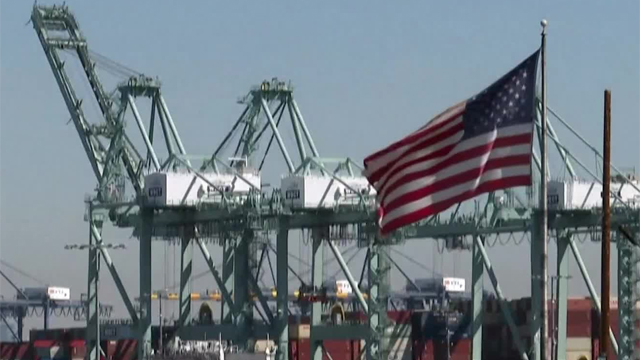
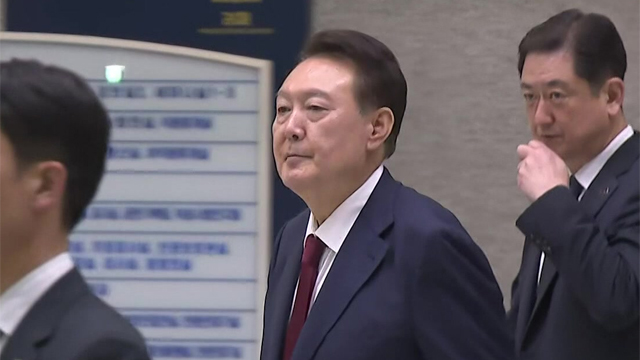
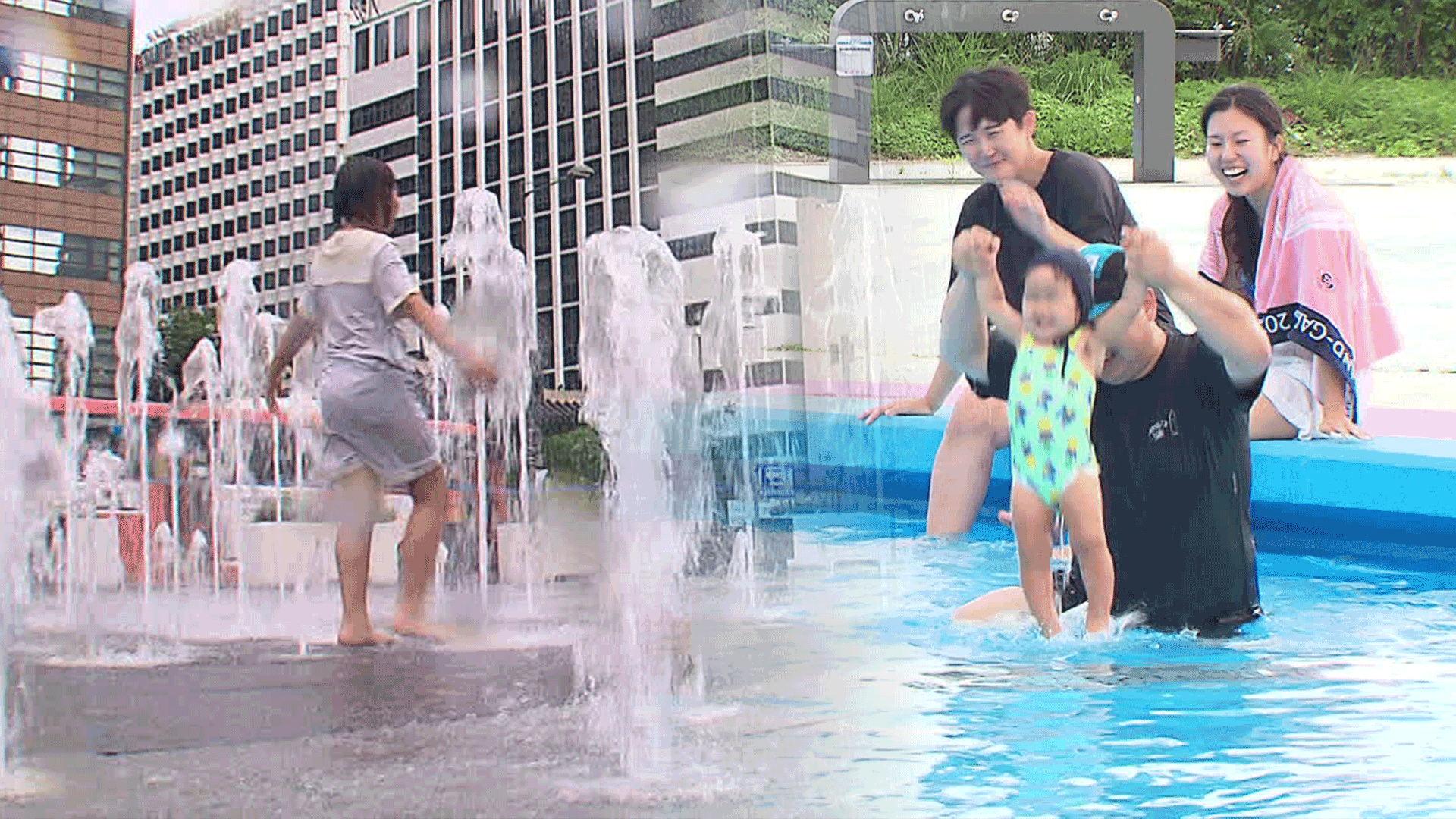
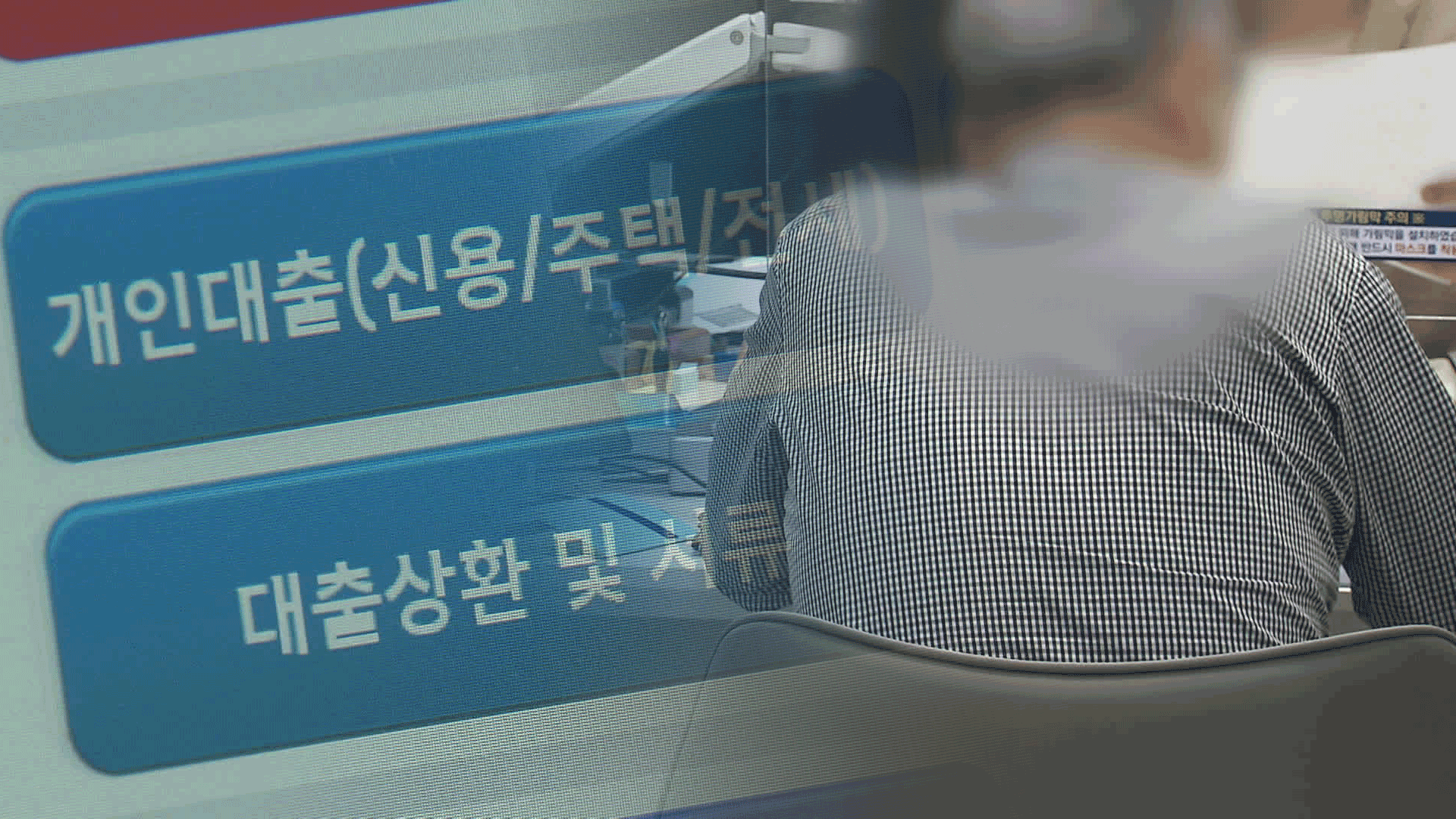

이 기사에 대한 의견을 남겨주세요.